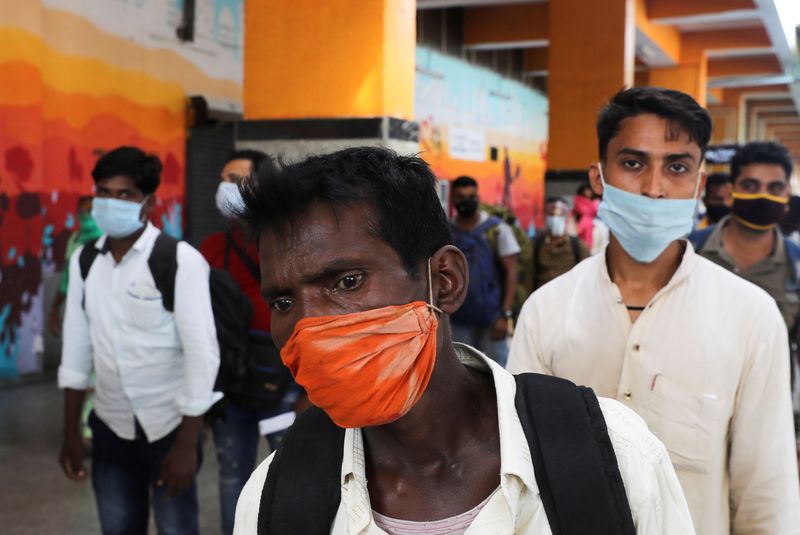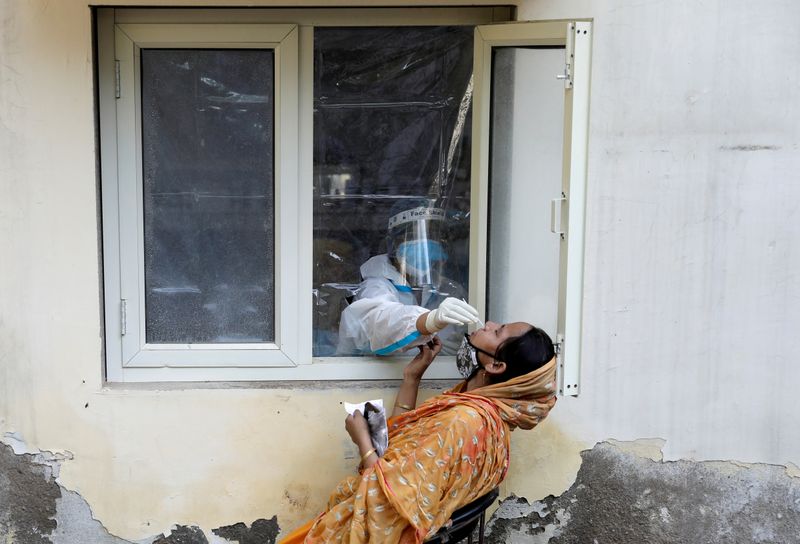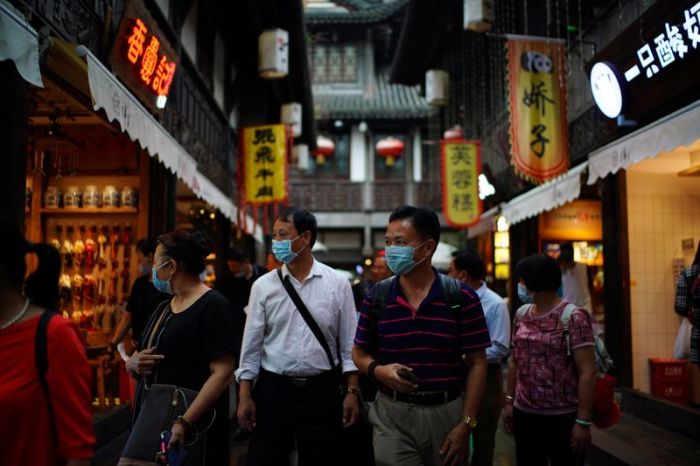NEW DELHI (Reuters) – Delhi authorities have stopped putting notices outside the homes of people infected with coronavirus because this has amplified the social stigma associated with the disease and in turn caused others to hide their illness, officials said on Monday.
Early on during the outbreak in the Indian capital, officials would paste a poster on the homes of people in quarantine after they had tested positive for the virus to make sure everyone in the neighbourhood was careful. It also deterred people from violating the quarantine.
But more than six months into the pandemic people were fully aware of COVID-19, the respiratory disease caused by the virus, and there was less need to publicise the cases, city officials said. Instead it was important to instil confidence in people to come forward and test themselves.
“There is a stigma with the coronavirus disease and posters outside the house amplify that. By doing away with this, we are aiming at increased testing. We want more people to get themselves tested without thinking of stigmas,” said Delhi environment minister Kailash Gehlot.
India’s total coronavirus cases stood at 7.12 million on Monday, health ministry data showed, behind only the United States which is approaching the 8 million mark.
The country recorded 66,732 new infections in the last 24 hours, a decline from last month’s highs, but still the world’s highest daily rise.
Deaths from COVID-19 infections rose by 816 to 109,150, the health ministry said.
Delhi makes up a little over 4% of India’s total caseload, the second highest after the western city of Pune, and ahead of Mumbai and Bengaluru.
Some residents in Delhi said that such was the fear over the disease that people tried to distance themselves from patients even after they had recovered.
“Discrimination is widespread, putting posters adds to the problem,” said Dr Jugal Kishore who heads the community medicines department at Delhi’s Safdarjang hospital.
Other states such as Uttar Pradesh, the most populous, have also stopped publicising cases in the neighbourhood. But the practice remains prevalent in Mumbai, residents said.
(Reporting by Sanjeev Miglani, additional reporting by Nallur Sethuraman and Anand Katakam in Bengaluru, Euan Rocha in Mumbai and Saurabh Sharma in Lucknow; Editing by William Maclean)


























